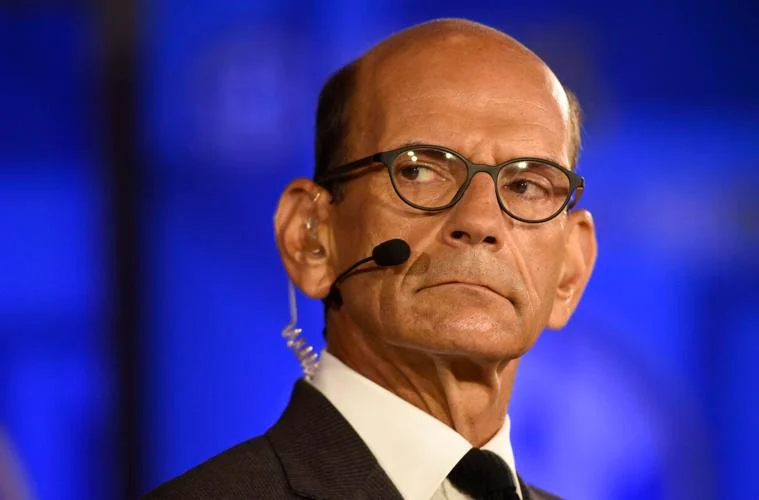As USC prepares to transition from the Pac-12 to the Big Ten, sports commentator Paul Finebaum has stirred up controversy with a bold prediction. Finebaum, a well-known critic and analyst, has expressed doubts about USC’s head coach Lincoln Riley, claiming that the move to the Big Ten will expose Riley’s coaching shortcomings.
In a recent segment on his radio show, Finebaum didn’t hold back his criticism. “I fully expect Lincoln Riley to show what an average coach he is,” Finebaum asserted. “The Big Ten is a different beast, and Riley’s high-flying offense, while impressive in the Pac-12, might not be enough to make waves in a conference known for its physicality and tough defenses.”
USC’s shift to the Big Ten, effective from the 2024 season, marks a significant realignment in college football. The Trojans, long a dominant force in the Pac-12, are now entering a league with a markedly different style of play. The Big Ten is renowned for its strong defensive teams and physical gameplay, a stark contrast to the often high-scoring and pass-heavy games of the Pac-12.
Finebaum’s comments reflect a broader skepticism about how USC and Riley will adapt to this new environment. Critics argue that Riley, who has enjoyed success with high-scoring offenses at Oklahoma and USC, may struggle to match his previous success against the more defensively oriented teams of the Big Ten.
Lincoln Riley is no stranger to high expectations. Before taking the reins at USC, Riley built a reputation as one of college football’s brightest offensive minds. His tenure at Oklahoma saw the Sooners consistently rank among the top offenses in the nation. Riley’s innovative approach and offensive prowess led to multiple playoff appearances and Heisman Trophy winners.

However, Finebaum’s critique highlights a key issue: while Riley’s offensive schemes have dazzled in the Pac-12, the Big Ten’s defenses are traditionally more formidable. The physical style of play and the strength of Big Ten defenses may present challenges that Riley has yet to face at the same level.
The transition to the Big Ten presents several challenges for USC:
Riley will need to adapt his offensive strategies to cope with the Big Ten’s robust defenses. This may require adjustments in game planning, play-calling, and possibly even recruiting to match the new competitive landscape.
Recruiting strategies may need to evolve to attract players who excel in the Big Ten’s style of play. This includes targeting athletes who are not only talented but also capable of handling the physical demands of the conference.
Games in the Big Ten are often characterized by a grind-it-out approach with a focus on running the ball and strong defensive play. Riley will need to find ways to sustain his offensive success against teams that are adept at controlling the clock and limiting high-scoring opportunities.
In response to Finebaum’s comments, USC and Lincoln Riley have remained confident about their upcoming challenge. Riley has emphasized his commitment to adapting and evolving his strategies to meet the demands of the Big Ten. The Trojans have also been active in recruiting, aiming to bolster their roster with players suited to the new conference environment.
“We’re excited about the challenge ahead,” Riley stated. “The Big Ten is a great conference with a lot of tradition and strong programs. We’re looking forward to competing at a high level and continuing to build on the success we’ve had.”
As USC prepares for its Big Ten debut, the scrutiny on Lincoln Riley and the Trojans will undoubtedly intensify. Paul Finebaum’s prediction adds another layer of intrigue to the upcoming season, raising questions about how Riley’s high-octane offense will fare against the Big Ten’s formidable defenses. Only time will tell if Riley can defy the doubters and prove that his coaching acumen is as effective in the Big Ten as it has been in the Pac-12.
